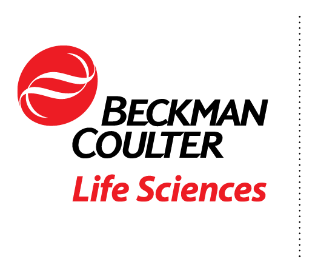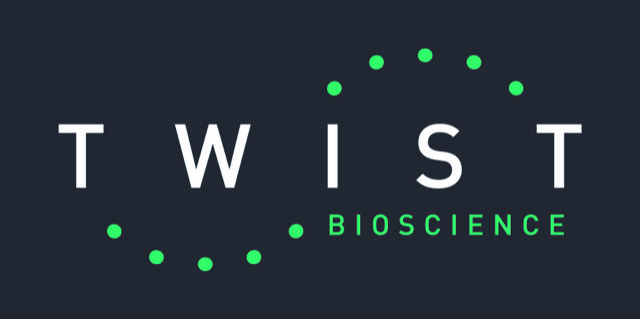PIs of Tomorrow
Announcing our finalists of the 2021 edition of "PIs of Tomorrow"
We received 66 eligible (inter)national applications. A big thank you to the evaluation committee for their work to select the best applications.
- Eduardo Martin Moraud - CHUV Lausanne (CH)
- Elisa Araldi - ETH Zürich (CH)
- Traian Popa - EPFL (CH)
- Karina Silina - UZH (CH)
Read below their research statements.
All applicants will be invited to attend the PIOT session (we will send information by e-mail in due time).
The PIs of tomorrow: The Future of Swiss Research” (PIOT), 2021 is organised and chaired by Shalu Jhanwar, UNIBAS; Eleonora Porcu, UNIL; Mehdi Badaoui, UNIGE & Myra Chavez-Rosas, UNIBE
Questions about the session should be addressed to postdocsession@gmail.com
Eduardo Martin Moraud
Research statement
Neuromodulation therapies using electrical stimulation have shown impressive results to help alleviate deficits in a variety of neurological disorders. For instance, deep brain stimulation has become a common approach for the symptomatic treatment of Parkinson's disease. Similar solutions exist, and are being optimized, for epilepsy and chronic pain.Despite these advances, current therapies are only tuned manually, solely during in-clinic visits. They then remain unchanged for months -- This lack of adaptability fails to address essential time-related fluctuations affecting the medical condition of patients, whether fast variations throughout the day, or slow progressions over weeks.
My past and present work focuses on bringing adaptability, automatic control and machine intelligence into neuromodulation protocols, to truly personalize therapies to the ongoing state of each patient.
During my PhD, I pioneered the first closed-loop system to control spinal-cord stimulation after spinal cord injury. This allowed to selectively restore leg movements and improve gait rehabilitation in paralyzed rodents. I helped extend this approach to non-human primates and combined it with brain decoding to devise the first Brain-Spinal Interface. Similar protocols have since then been employed in the framework of a clinical trial at CHUV with highly promising results. I then translated these concepts to deficits of gait and balance in Parkinson's patients, for which current therapies exhibit very modest improvements. By leveraging the latest implantable technologies, which enable to record patients' brain activity chronically and in real-time, I am decoding neural signatures that underlie well-defined impairments, and devising stimulation protocols to prevent them.
My long-term goal is to reinforce this research direction as a well-grounded clinical practice. Neurotechnologies that synergistically leverage recordings and stimulation from various neural structures, simultaneously and in closed-loop, will allow to predict and prevent impairments using feedback of ongoing clinical needs, and have the potential to greatly improve patient's lives.
Elisa Araldi
Bridging physiology and big data analysis to discover the function of cholesterol biosynthesis intermediates in development and disease
Genetic inborn errors of cholesterol biosynthesis highlight an intriguing paradigm of biology. Lack of cholesterol itself cannot explain the variety of phenotypic manifestations across these syndromes, and it is speculated that lack or accumulation of cholesterol biosynthetic intermediates (CBIs) are instead the main culprits. Since the knowledge on CBIs is currently scarce, I am proposing to systematically study cholesterol biosynthetic intermediates and their yet undiscovered roles in development, physiology, and disease progression.
During my training I gained a strong expertise in cholesterol biosynthesis, physiology and big data analysis. In my PhD, I demonstrated that lanosterol, the first synthesized sterol, is an important player in innate immune responses in vitro and in vivo (Araldi et al, Cell Reports, 2017). During my postdoctoral training, I used in vivo models and genetic analysis from biobanks to study the role of PAM, a peptidylglycine-amidating monooxygenase, in diabetes onset and progression, and in endocrine disorders (manuscripts in submission).
For my independent research, I will carry out the first systematic study of signaling properties of CBIs and their signaling networks. I propose an approach that combines a novel experimental strategy to discover CBI interacting proteins with an innovative analysis exploiting genomic and phenotypic data from large biobanks. The goal is to infer and validate the relationships between CBIs and their signaling mediators, and to determine the role of individual sterols in relevant pathologies. Ultimately, the knowledge gained will be translated in genetic in vivo models of CBIs gain or loss, and in relevant murine disease models where CBIs and their mediators can be targeted with drugs.
Identifying the receptors, signaling pathways and functional mechanisms of CBIs might provide novel therapeutic targets both for the devastating and lethal congenital disease driven by inborn errors of cholesterol synthesis, and for other physiological processes mediated through CBI-mediated signaling pathways.
Traian Popa
Research statement
My overall aim is to develop and implement new non-invasive neuromodulation techniques that can efficiently re-establish the connectivity equilibrium in neuronal networks impaired by neurological disorders.
I have used the movement disorders as a prime field for exploring the subcortico-cortico interactions, and the clinical effects of neuromodulation on these dynamics. I found that the cerebellum is controlling the way in which sensory information is fed into the motor control system, thus remotely tuning the heterosynaptic but not homosynaptic plasticity in other parts of the brain. Starting from this discovery, I deployed cerebellar stimulation in movement disorders and found that abnormal subcortico-cortical interactions can be partially corrected with significant clinical benefit. For example, in essential tremor, one week of inhibitory stimulation could reduce the tremor up to 2 weeks, while in Parkinson’s disease, the abnormal cortical plastic response could be corrected after two weeks ofinhibitory stimulation, which was further associated with reduced severity of dyskinetic episodes. In healthy older adults, artificial cerebellar inhibition could boost the impaired cortical plasticity. When applied in combination with a motor sequence learning task, the stimulation of the right but not the left cerebellum was able to bidirectionally influence the learning curve by modulating the same corticosubcortical networks that are used in language production.
I am currently developing in collaboration with colleagues from EPFL and Imperial College London a new technique of direct non-invasive modulation of deep structures, using the temporal interferences of oscillating electrical fields. I plan to further refine this approach and deploy it in cognitive and motor disorders, with a particular focus on cognitive decline associated with Parkinson’s disease. I intend to use the previous knowledge of subcortico-cortical interactions to define the targets for the multi-channel temporal interference, to entrain neuronal oscillations towards a normal range.
Karina Silina
Research statement
Studying the literature at the time when little was known about tertiary lymphoid structures (TLS) in cancer led me to hypothesize about the beneficial role of tumour infiltrating B cells in the context of lymphoid neogenesis – a process that generates TLS. I pursued this idea in my second postdoc. I developed novel TLS analysis approaches and established the concept of TLS maturation and its relevance in improved lung cancer prognosis, highlighted in the recent TLS review (Sautès-Fridman C., et al., 2019, Nat Rev Cancer). In collaboration with clinicians in the Netherlands Cancer Institute, we demonstrated that TLS development in tumours is a significant trait of response to immune checkpoint inhibition. However, my recent unpublished data show that TLS are negative prognosticators in kidney cancer revealing the complexity of tumour-associated TLS biology that is poorly understood.
In my future research, I aim to decipher the mechanisms of TLS development and functions in various tumours and clinical settings. In collaboration with a computational pathology lab, we developed a unique deep learning algorithm HookNet for automated TLS quantification in histology images. This approach will allow me to go beyond the state of the art by analysing TLS in a pan-cancer setting using the vast data of The Cancer Genome Atlas. Here I will determine tumour-intrinsic factors affecting TLS development and its prognostic validation. Next, I will employ spatial transcriptomics, a novel unbiased mRNA quantification approach in tissue sections to unravel the differences of TLS in cancers with opposing prognostic associations (lung and kidney). This will reveal potential protecting or tumourpromoting capacities of TLS. I will use independent patient cohorts and animal models to validate these findings.
The obtained results will contribute to our basic knowledge of tumour immunology as well as reveal potential biomarkers and therapy options for cancer patients.
Our Jury for the 2021 Edition of PIOT
- Guillaume Diss (Friedrich Miescher Institute for Biomedical Research - FMI, Basel. CH)
- Marlen Knobloch (University of Lausanne. CH)
- Kelly Tan (University of Basel. CH)
- Ping-Chih HO (University of Lausanne. CH)
- Miriam Stoeber (University of Geneva. CH)
- Paula Nunes-Hasler (University of Geneva. CH)
- Daniel Huber (University of Geneva. CH)
We are very happy to have such a great panel of jury. Thank you very much!
Where are the past winners now?
-
- Lucia Prieto-Godino: 2017 Jury & Public Award Winner
Awarded FENS EJN Young Investigator Prize, L’Oreal-UNESCO for women in science Fellowship
Now Group Leader at the Francis Crick Institute (London, UK) - Alexander Harms: 2018 Jury Award Winner
Awarded SNSF Ambizione
Now Project Leader at Biozentrum University of Basel (CH) - Andreas Moor: 2018 Public Award Winner
Awarded SNSF Eccellenza, ERC Starting Grants
Now Professor at University of Zurich (CH) - Michael Zimmermann: 2019 Public Award Winner
Awarded SNF Advanced Postdoc.Mobility Fellowship, SwissTB Award, EMBO Long-Term Fellowship, SNF Early Postdoc.Mobility Fellowship Now Now Group Leader at EMBL (DE) - Francesca Ronchi: 2019 Jury Award co-Winner
Awarded SNSF-MHV Postdoctoral fellowship, ECCO Grant
Now Senior Scientist and Lecturer at University of Bern (CH) - Jean-Philippe Krieger: 2019 Jury Award co-Winner
Awarded an SNF postdoctoral fellowship
Now Postdoctoral Researcher at University of Gothenburg (Sweden)
- Thomas O. Auer: 2020 Jury Award Winner
Awarded an Ambizione Fellowship
Group Leader ( SNFS Ambizione) at University of Lausanne (CH) - Joachim Moser von Filseck: 2020 Public Award Winner
Now Postdoctoral Researcher at the University of Geneva (CH)
- Lucia Prieto-Godino: 2017 Jury & Public Award Winner
About the Chairs
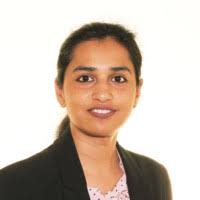
Dr. Shalu Jhanwar, University of Basel, Senior Post-doctoral associate.
Shalu Jhanwar studied Bioinformatics at Banasthali University and at Jawaharlal Nehru University in India to obtain her MSc degree. In 2012, she joined a Ph.D. program in computational biology at The Centre for Genomic Regulation (CRG), Barcelona and and worked on epigenetics of neurodegenerative disorders and cancer genomics. Currently she works as a computational scientist investigating the role of epigenomics during development and evolution at the University of Basel. She is on the reviewer panel for peer-reviewed journals and is appointed as an academic editor at PeerJ. She is an active member of the organizing committee of major life science events including PIs of Tomorrow and Basel Postdoc Network Meeting. Besides, she enjoys working on multiple projects simultaneously and is keen to transform research outcomes into innovations. When she is not in the lab, you can find her dancing, writing, reading, and solving puzzles.
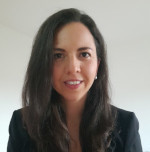
Myra Chávez obtained her Bachelor and Master Degrees in Molecular Life Science from the University of Lübeck, Germany. As a Ph.D. candidate at the Technical University Munich, she developed an ambitious project that attempted to circumvent hypoxia and the poor regenerative potential of engineered artificial tissues using photosynthetic transgenic microalgae. Besides, she participated in several collaboration projects and preclinical studies aiming at improving the acceptance, survival and regenerative capacities of dermal substitutes with research groups in California, Germany and Chile. She obtained a 3-year fellowship awarded by the Chilean government to study the importance of autophagy for zebrafish heart regeneration and its potential as therapeutic target for heart failure. Following her scientific interests, she recently joined the research group of Prof Nadia Mercader at the Institute of Anatomy to investigate the cellular processes behind zebrafish potential to regenerate cardiac valves. Her scientific work has been recognized with the Acta Student Award, as well as research grants to pursue collaboration projects in Europe. She intends to dedicate her scientific career to the research field of tissue engineering and regeneration and make significant contributions to the development of functional artificial organs. Hiking is her passion, particularly when joined by her quadruped wet-nosed friend.
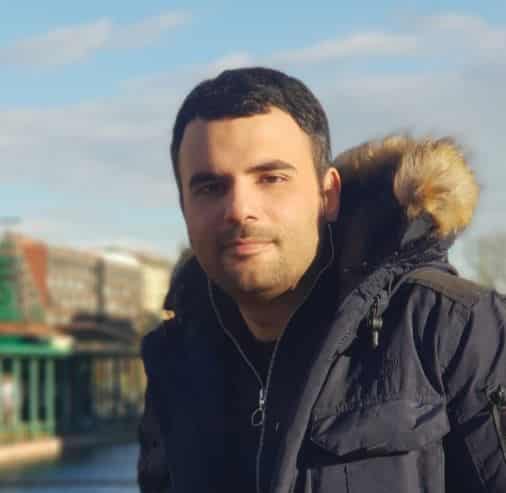
Mehdi Badaoui obtained his MSc Degree in Molecular Interactions and Therapeutics from Jules Verne University of Amiens (France). In 2013, he started his Ph.D. working on the impact of tumor microenvironment on Breast Cancer progression, through the regulation of ion channels expression and activity. During his PhD, he developed strong skills on electrophysiology and cellular biology, supported by rewarding collaborations with the University of Reims (France) and Max Planck Institute for Experimental Medicine (Germany). Subsequently, he spent a year as a research and teaching assistant at the University of Amiens where he improved his communication and teaching skills. In 2018, he started a postdoc position at the University of Geneva under the supervision of Prof. Marc Chanson, focusing on the airway epithelium remodeling in Cystic Fibrosis and its predisposition to chronic infections by opportunistic pathogens. His scientific contribution was valued by winning the best poster presentation award at the ECFS Basic Science Conference 2018 and the Young Investigator Award for his oral presentation at the Swiss Physiology Meeting of Life Sciences Switzerland 2019.
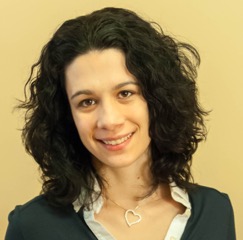
Eleonora Porcu obtained her master degree in Mathematics in 2008 at the University of Cagliari (Italy). In the same year, she started a pre-doctoral position at the Institute of Genetic and Biomedical Research (IRGB) in Cagliari. There, she developed strong skills on genome-wide association analyses and on meta-analyses of quantitative traits. In 2011 she started a PhD in Biomedical Science at the University of Sassari (Italy). During her PhD she spent more than two years at the University of Michigan (USA) where she improved her knowledge in rare variants test, next generation sequencing and imputation strategies. Obtained her PhD, in 2016 she started a postdoc position at the University of Lausanne under the supervision of Prof. Zoltan Kutalik and and Prof. Alexandre Reymond. Her main interest is the development and the application of mathematical models to genetic data to discover networks of biomarkers causally associated with complex human traits. Towards this goal, she has recently developed a transcriptome-wide Mendelian randomization approach (called TWMR) that integrates genome-wide association study (GWAS) data with expression quantitative trait locus (eQTL) data to pinpoint likely causal genes for many different diseases. The scientific community has already recognized the value of her work. In 2018, at the ESHG she won the Young Investigator Award for the best talk in statistical genetics (Lodewijk Sandkuijl Award) on top of her Fellowship of Excellence for Young Investigators. In 2019 she won the prestigious Swiss Institute of Bioinformatics Early Career Bioinformatician Award. Her interest for science goes beyond her research line: she is active in the organization of science events including PIs of tomorrow: The Future of Swiss Research session of Life Sciences Switzerland (LS2) and the 48th European Mathematical Genetics Meeting.
PIOT Competition Prizes
A prize will be offered to both Jury & Public Award Winner at the e-meeting.
Thank you to our sponsors who support those prizes.





